Who inspires me: My [late] mum. She showed compassion and love to everyone. She taught me the value of being thankful for what you got instead of complaining of what you don’t have. She always told me to work hard and be strong.
Best advice: Work hard, show love and think positive.Anja Ringgren Loven was slumped in the back of the car on the way home from an aborted ‘witch-child’ rescue mission in Nigeria when she received the phone call. Already distraught with the disappointment of having failed to rescue the child, Anja could scarcely believe what she was hearing now.
There was a boy, maybe two or three years old, who was near dead, said the voice on the phone. He’d been branded a witch, abandoned by his family, and left to die in the streets.
Every year Anja and her team at African Children’s Aid Education and Development Foundation rescued dozens of Nigeria’s ‘witch children’ – children whose families turned on them from one day to the next, and tried to murder or torture them because of superstitious beliefs that their child had suddenly become evil. But never before had Anja heard of someone so young being outcast.
Anja and her team normally took days to plan such rescues – careful to protect the lives of the rescue team as well as those they were saving from fanatics hell bent on purging ‘evil’ from their lives. But there was no time to plan the rescue of this child. Anja instructed the car to divert course. She wasn’t going to let another child fall victim to this terrible curse, not today, not after the failed rescue, which she’d called off to save her rescue team’s lives.
She wasn’t going to let another child fall victim to this terrible curse.
Horror sparks quest to help
Of course today wasn’t their first failure. In 3.5 years at this game, Anja had experienced her share of devastation: times when they’d arrived too late, the accused children already dead from starvation, from exposure, or burnt alive, drowned in rivers, hung in trees, hacked with axes. It was her desire to stem such horror that brought Anja to Nigeria. She’d been sitting in her home in Denmark – one of the most peaceful countries in the world – when she saw a documentary about the plight of Nigerian children who’d been branded witches.
Appalled at what she saw assaulting her TV screen, Anja knew she had to do something. She’d already gained aid experience living in Malawi for three months, and helping to rennovate a village school in Tanzania. So she sold her every possession to fund a trip to Nigeria where she’d work at an orphanage for children accused of witchcraft.
It was here she’d meet David Emmanuel Umem who would go on to be her husband. David was a Nigerian law student who’d been fighting for human rights in his country since he was 15. Burning with a desire to do more, and avoid the corruption they’d witnessed at this orphanage, the duo determined to open their own orphanage to help the shunned witch-accused kids.
They eventually fundraised enough money to buy a plot of land in 2014 that today houses 50 abandoned children in a hostel, with room for up to 200. The orphanage, called Land of Hope, also houses 10 staff and Anja, David and their son Junior. Most of the orphanage kids are aged from six to 18 years old.
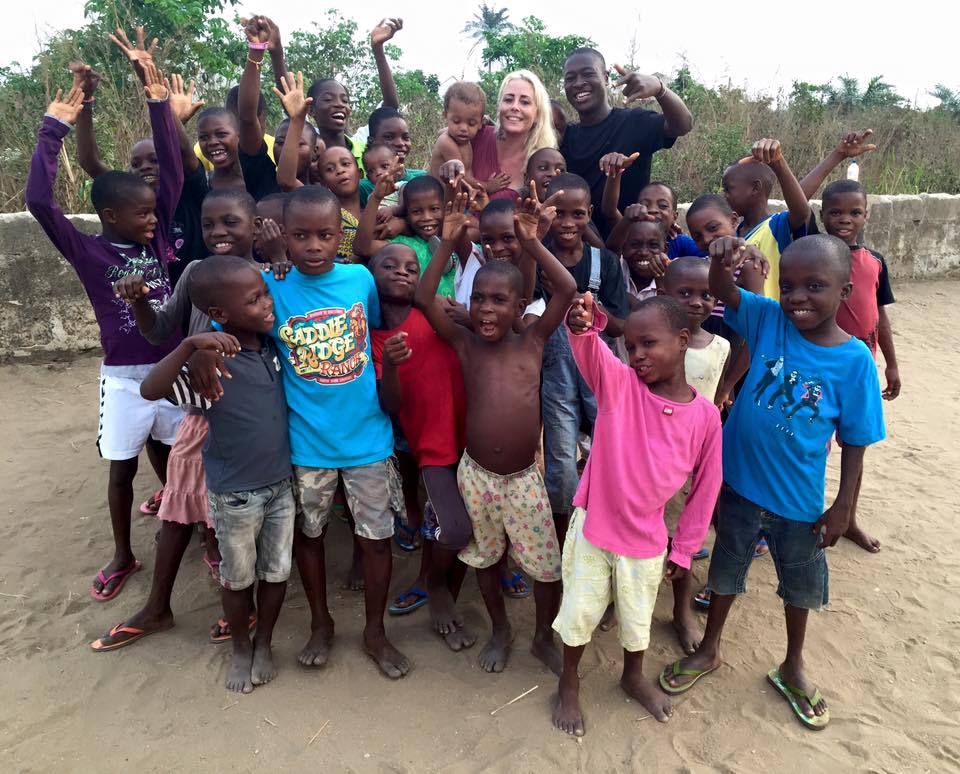
Rescue attempt
David was at Anja’s side as they averted their course from the failed rescue mission with hope of rescuing the abandoned toddler. They knew they couldn’t just swoop in and pluck the boy from the streets without reprisal. They’d need to be smarter than that.
Normally Anja’s staff handled the rescues as Anja, a white woman with striking white hair, tatooes and long pale limbs, attracted too much attention. But perhaps this time it could work in their favour. They decided to pose as missionaries and visited a man selling dog meat, close to where the boy was last sighted. While speaking to the dog meat seller, one of the team spotted the forlorn figure of what could only be the abandoned toddler. Anja risked a furtive glance and felt her body freeze in shock at the sight of him.
Used to playing this game by now, Anja composed her face into a mask and feigned an interest in the plants and trees, asking the dog meat seller to walk down the street to explain the plants they passed by. She guided him towards the boy until his emaciated figure was directly in front of her.
Anja commented that the boy looked like he needed some food and she knelt down in front of him. “By now there were lots of people who’d come out to see the white people,” Anja recalls. “We were surrounded and the tension was really high. I kneeled down to give him some water and biscuits and he smelt so bad – he was more dead than alive. I said ‘I think this child needs medical help’ and asked if I could have a blanket to wrap him in and take him to a health clinic.”
Relieved at the man’s affirmative response, Anja gathered the tiny body in her arms and ventured back to their van. But at the last minute the dog-meat seller changed his mind. No they couldn’t take the child, he yelled. “I just thought we had to get the hell out of here,” Anja says. “This could not go wrong now.”
David ran down the street, flinging his arms in outrage and demanding to know how the man could be so selfish as to deny the medical care. Amid the confusion Anja, David and the camera crew travelling with them piled into the van and fled, a rescue worker cradling the boy’s near-lifeless body.
But it seemed the rescue was too late. The boy was too weak to suck juice from a straw. His body was covered in hair – a sign his insides were dying. Anja considered where to bury him. She didn’t want the child to be buried nameless so, when it came to registering his name at the hospital, she came up with a name that epitomised their desires for him – Hope.
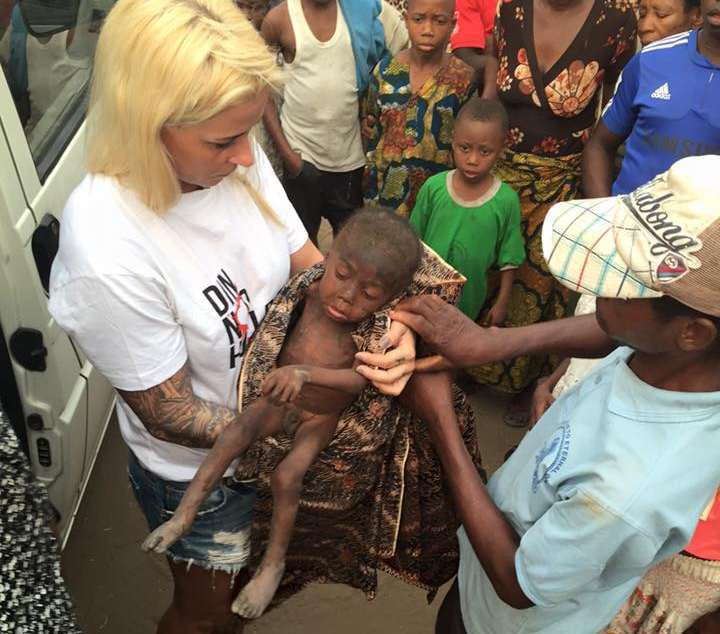
Hope
Looking back, it had been hope that had driven Anja’s work in Nigeria from the start. Hope of rescuing children, hope of preventing others being branded witches. Hope of educating the superstitious to show them another way.
Anja does not blame the families for ousting their children. She says they are innocent, uneducated, and superstitious, brought up to fear a world seething with the terrors of evil. Like the western world in medieval times, these people blame witches for any manner of ills – from poor harvests, to illnesses – and witchdoctors and pastors often profit from attempts to exorcise the ‘demons’ from those they’ve branded.
It’s these people, those who profit from the exercise and promote its belief, with whom Anja takes issue. But she must not risk deriding them in Nigeria – not if she cares for the safety of her family, her staff and the children in her orphanage. Instead of condemning witchery, Anja and her team work on advocacy – on letting people in the villages know to contact them if a child is accused. On giving them an alternative for the child who was often a beloved family member just days before the branding.
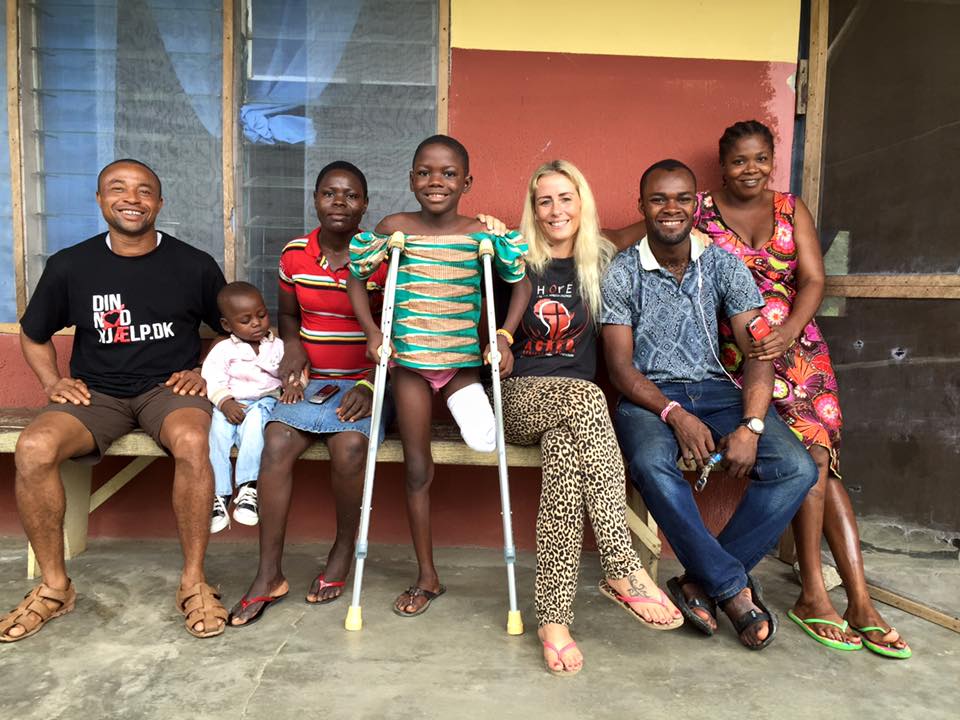
First rescue
Anja will never forget the first boy she helped rescue. The boy had been hiding in the forest for a month, too scared to venture out to anyone. But eventually Anja and her team found him, standing alone, his t-shirt torn with holes, his body caked with dirt. “There was no blood, no sign of torture, but he looked so, so scared,” Anja recalls. “That look of fear, of absolute loneliness, it was like a knife went through my heart. I just thought how can someone abandon a nine year old?”
While the physical and emotional healing takes time, Anja is amazed at the children’s strength of character and ability to recover from such horror. She cites the case of an 18 year old boy in the orphanage’s care whom they found three years ago. His uncles had held him down and hacked at his body with an axe, eventually slicing through his head to within millimetres of his brain.
The boy’s broken body mended with time but his mental wounds proved much harder. Like everyone at the orphanage, this boy received the love and encouragement and slowly he started to heal. Today that boy is now top of his class at school and plans to study law at university. “If you could have seen him when we rescued him to what he is today, you’d be so amazed,” Anja says. “He makes me so proud.”
“That look of fear, of absolute loneliness, it was like a knife went through my heart.”
New chance at life
With the orphanage’s emphasis on education, the boy is one of several kids at Land of Hope who are excelling at school. Their bright eyes and wide smiles continue to astonish Anja. “When we rescue them they are like wild animals,” she says. “But we take them in, they go to school, they become happy and they smile every day. When I feel down they say ‘are you ok?’, I just think I’m not even entitled to feel this sad – I’ve not gone through what they’ve gone through and look at their smiles.”
Transformed
Watching Hope’s emaciated body in the hospital, Anja doubted he’d live, let alone come to smile. With her own similar-aged son to care for, plus an orphanage full of other children, she left Hope at the hospital in the care of one of the orphanage’s rescue workers, Rose.
Rose stayed with Hope 24 hours a day for a month. She lay beside him, sung to him, preyed for him. Two weeks into his hospital stay his heart faltered and they feared the worst. But, remarkably, Hope lived up to his name. Anja’s face warms into a smile at the thought of him. He’s unrecognisable from the waif she swept into her arms 18 months ago. He is now a chubby toddler, his face full of cheeky smiles, at home at the orphanage.
Thanks to a photo taken at his rescue, shown alongside a photo of him today, which went viral across the internet, Hope has come to stand for everything Anja hopes to achieve. For if one so young, so fragile, so vulnerable, can recover, surely there’s hope for the others still to endure the accusation of witchcraft. Surely there’s hope that such horror can be overcome with education, understanding and love.
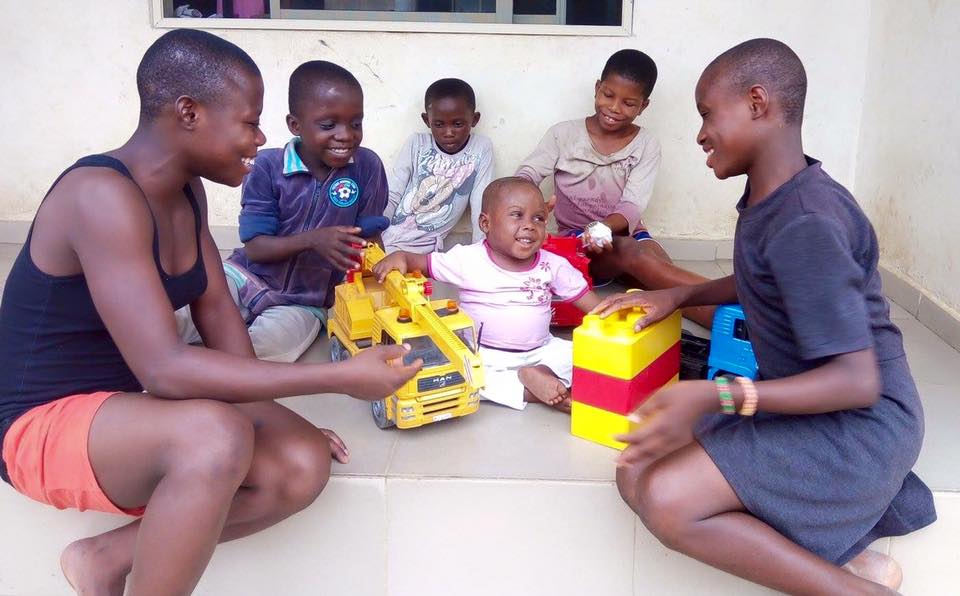
Get involved …
You can support Anja’s lifesaving work by making a donation at African Children’s Aid Education and Development Foundation website http://dinnoedhjaelp.dk/donation_english/.

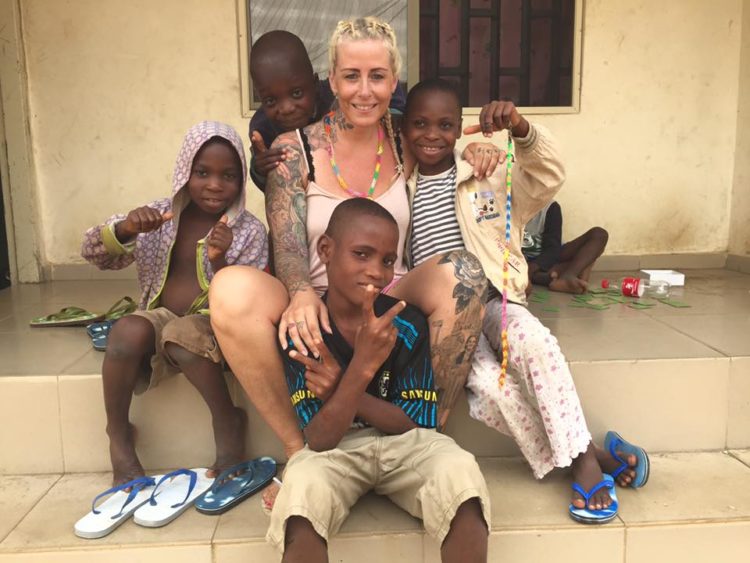
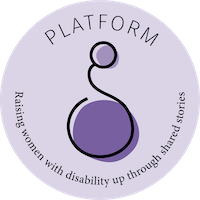

Wow. Incredible story. We need more warriors like Anja in this world. Thank you so much for sharing this. I did want to ask the author/editor something: You used “emancipated” twice in this article. Did you mean “emaciated”? It’s the appropriate word to use in both instances, instead of “emancipated”.
I am not trying to be a stickler for grammar. As you can tell, this comment is probably riddled with grammatical errors and poor sentence structure. I just wanted to share my observation with you. I love this article.
Hi Brandon
Thanks so much for your comment. Anja is amazing, isn’t she. And yikes, yes, I did mean emaciated. Thanks for pointing it out – will change it now! Have a great day. Samille
Anja is amazing. Because of her humanitarian activities she won the person of the year ahead of President Obama some years ago.
God bless her, bless Inspired
and bless you Smille.
I am a humanitarian, Environmental activist and Social good/impact doer..I will like you to interview me.